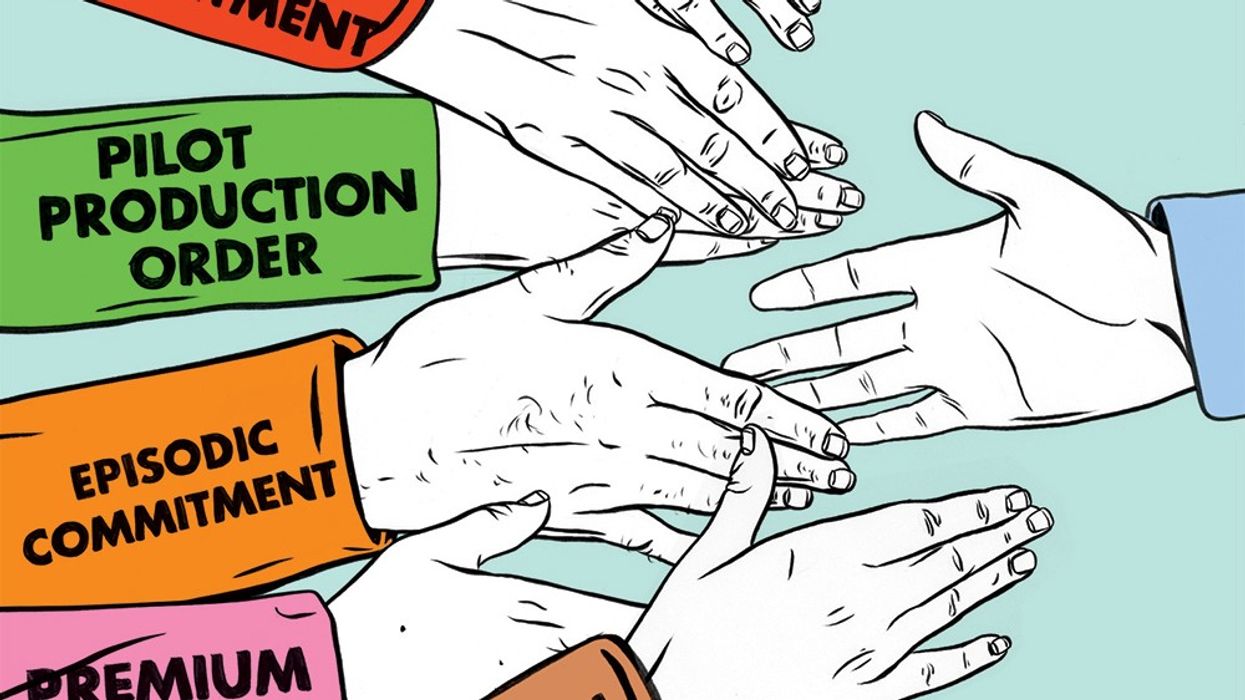How is Coronavirus Changing TV Pilot and Staffing Season?
Coronavirus is changing the way we look at and handle pilot and staffing season. And I don't think we will ever go back to the old way.

We are living through one of the largest seismic shifts in the film industry. Everything is changing—especially pilot and staffing season.
The spring months of the year are usually reserved for cable and network deciding which shows they want to try out in the fall. They buy scripts, cast actors, and shoot pilots, picking the ones they think have the best chance of being breakout hits in the coming year.
But all that changed when Hollywood shut down production due to COVID-19.
According to the Los Angeles Times, "Pilot season, which typically runs from late February to early May, injects an estimated $500 million in annual spending into the entertainment economy, which also boosts small firms such as prop houses and catering firms that provide support."
What happens when all that goes away?
How can networks prepare new shows for the fall when production has halted all over the world?
Things are now going to change...not just for now, but in the future, as well.
Let's talk about how.
How is Coronavirus Changing Pilot and Staffing Season?
"I suspect that we’ll look back on this event and say: "That was the tipping point,'" said producer Warren Littlefield, who ran NBC Entertainment during its 1990s heyday. “All the walls have been crumbling, and this is the final blast."
Well, here we are, at the tipping point.
But what has to change?
Pilot season has been around since the 1960s and already felt a bit antiquated as more and more of our favorite shows are debuting at random times and all at once on streaming platforms like Netflix and Amazon.
This year, network TV picked up 56 pilots. Only one of them has been shot already, with the other 55 awaiting cast, shoot dates, and premieres.
That is not great news for networks desperate to keep up with streamers in an ever-changing world.
What Happens Next?
You're finally up to speed on where Hollywood is right now...but we have the future to think about. Most producers think actual production cannot begin until the fall. So, the very idea of television seasons might be dead.
Networks have gone against the curve here, but during this time, if they want to survive, they need to shift to a TV model that favors content all year-round.
We will also see many more shows not get pilots, but "straight to series" orders. This means not just watching a pilot but commissioning over 10 episodes all at once.
To balance those expenditures, look for fewer TV shows to be bought in general. Maybe not by a lot, and definitely not all at once.
Pilot season usually culminates in upfronts, which are lavish presentations by the networks that happen in New York City. Those always felt a little old in the modern world. And collective worry about people congregating will certainly shut that down.
But forget about when your favorite shows will debut.
There are jobs at stake.
The Economy of Television
Almost 200 TV shows shoot in and around Los Angeles employing tens of thousands of people. With this dramatic shutdown, these people are now out of work for the foreseeable future.
Hollywood knows that it cannot happen again.
Measures will be taken to shoot pilots all over. We may see Hollywood become less centralized, but that remains to be seen. Taking such a hit all at once is a blow the town can come back from, but one they have to learn from in order to move forward.
What's Next? Learn About Pilot Season!
Got a great TV script? How do you get it to pilot? And what's this "season" nonsense?












